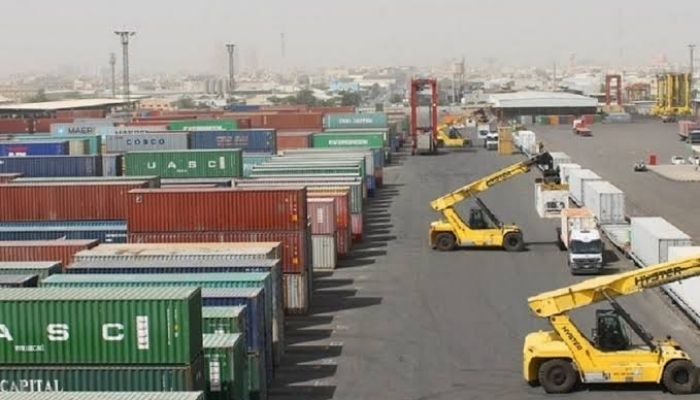From Okey Sampson, Umuahia
The Abia State Government and the Nigerian Shippers’ Council (NSC) have met in Umuahia to strategise on actualising the Isiala Ngwa Inland Dry Port (IDP) to serve the South East region. While dry ports in Ibadan, Kano, Kaduna, and Funtua are operational, the Ntigha IDP in Isiala Ngwa North Local Government Area remains stalled.
Governor Alex Otti, speaking during the strategic meeting, decried the 19-year delay since the project’s conception in 2006, describing it as a major economic loss and a sign of flawed implementation. He emphasised that the absence of reliable rail connectivity is a critical obstacle, stating, “The cheapest way to move goods is through rail. You can freight them and pay more, but that’s not sustainable for business.” Otti called for federal intervention to address infrastructure challenges, particularly the lack of standard-gauge rail linking the port to coastal seaports.
The NSC’s Executive Secretary, Dr. Akutah Pius Ukeyima, noted that the Isiala Ngwa IDP, concessioned to Eastgate Container Terminal Limited for 30 years, is only 10% complete due to infrastructure deficits and delayed equity obligations. He highlighted its potential to transform Abia into a logistics and trade hub, providing global market access for Aba’s industrial clusters and SMEs, creating thousands of jobs, and boosting the state’s Internally Generated Revenue (IGR). Ukeyima stressed the project’s alignment with the African Continental Free Trade Area (AfCFTA), noting its role in facilitating regional trade and transit cargo to landlocked countries like Chad and Niger.
Ukeyima urged the state to provide critical infrastructure—access roads, electricity, and water—establish a state implementation committee, and ensure concessionaire compliance. He reaffirmed the NSC’s commitment to regulatory and technical support. Governor Otti expressed readiness to collaborate, noting recent state efforts to clear the site and provide utilities, building on commitments made as early as 2019.
The meeting underscored the IDP’s potential to leverage AfCFTA’s $3.4 trillion market, driving export diversification for agro-commodities, textiles, and leather from Aba, while fostering job creation and economic growth in the South East.


